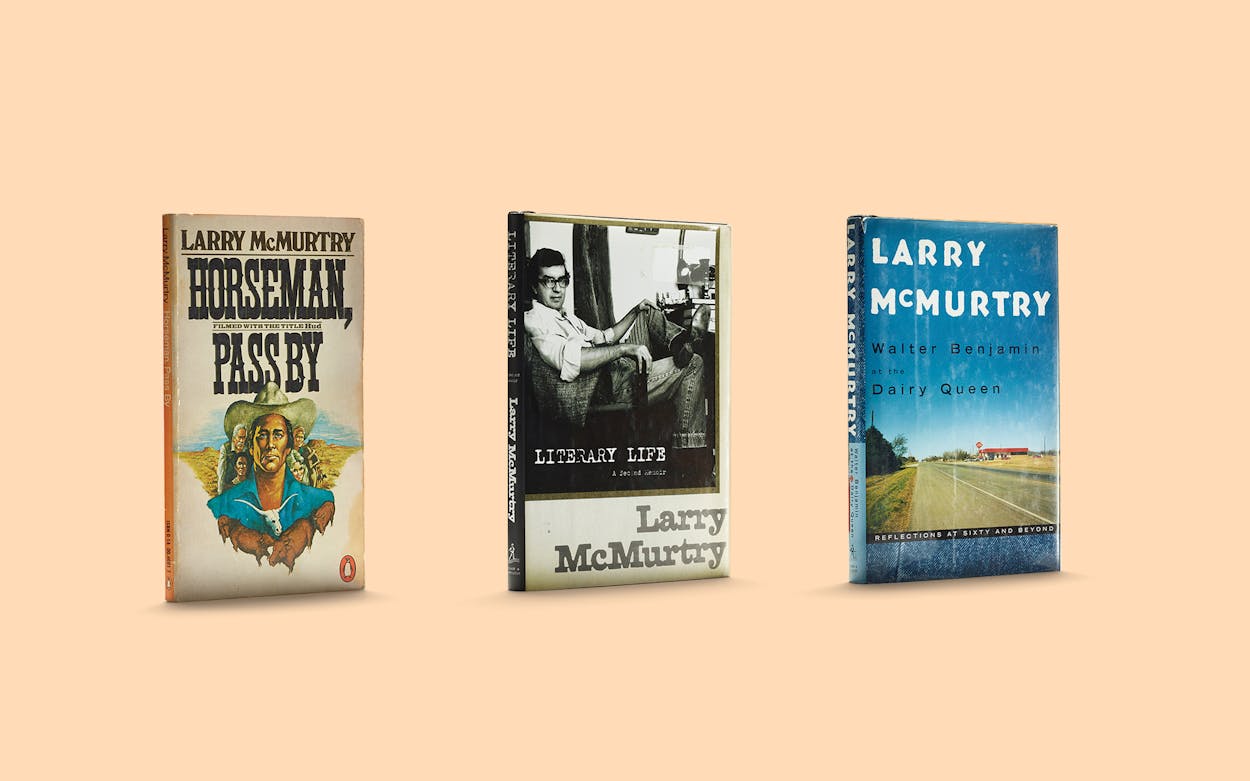Horseman, Pass By (1961)
McMurtry’s first novel is a succinct initiation story of a boy’s leaving the ranch to roam the world. Because McMurtry’s editors required significant edits, this is a tightly structured, elegiac narrative, revolving around Homer Bannon, an old rancher; his stepson, Hud; and his grandson, Lonnie, who is caught between Homer and Hud and drawn to a world of books and trains.
In a Narrow Grave: Essays on Texas (1968)
This collection, a statement of McMurtry’s ambivalence about his home state as it moved from rural to urban, covers everything from the Old Fiddlers’ Reunion, in Athens, to Houston’s Astrodome to McMurtry’s cowboy uncles watching the end of the cowboy life. His observations on the upheavals that produced contemporary Texas are both incisive and prophetic.
Comanche Moon (1997)
This Lonesome Dove prequel presents Gus and Call in middle-age while introducing some highly original, compelling characters: Ranger Captain Inish Scull; his wife, Inez; and Ahumado, one of the most vicious villains in all of McMurtry’s novels. Once again, McMurtry invokes frontier violence to upend any idealized images of the Old West.
Duane’s Depressed (1999)
Duane Moore, who was young, dumb, and full of vigor in The Last Picture Show, then middle-aged and hanging on with the oil industry in Texasville, now enters old age, wondering if he has failed to live the examined life and whether there is still time to pursue it. Contemplative and reflective, this novel, which McMurtry himself considers his best, embraces the transformative possibility of change.
Walter Benjamin at the Dairy Queen (1999)
This first of several memoirs dwells on cowboying, writing, storytelling, reading and book collecting, aging, and fatherhood. Just as McMurtry’s fiction focuses on the moment an old order gives way to a new (the rural Southwest’s uneasy transition to the urban), Dairy Queen’s major transitional figure is the author himself, reminding us why McMurtry’s shadow looms large over the Texas landscape.
Literary Life: A Second Memoir (2009)
In this late look at his own writing and interactions with other writers (Susan Sontag, Ken Kesey, John Graves), McMurtry also explains how he reluctantly became the president of PEN, the international writers’ organization. Most important, the book shows how a young man who grew up in “a bookless town in a bookless part of the state” dedicated himself to the literary life and became Texas’s best-known writer.
- More About:
- Books
- Larry McMurtry
- Archer City







